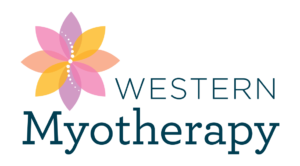
02 Dec Understanding Headaches and How Myotherapy Can Help
Headaches are a common ailment affecting millions of people worldwide, manifesting in various forms and intensities. From the occasional tension headache to chronic migraines, these painful episodes can disrupt daily life and hinder productivity. While over-the-counter medications can provide temporary relief, they don’t always address the underlying causes of headaches. This is where myotherapy can come into play—a hands-on treatment that focuses on muscle function and pain management.
Types of Headaches
Before delving into how myotherapy can assist with headaches, it’s essential to understand the different types of headaches:
- Tension Headaches: The most prevalent type, often triggered by stress, poor posture, or muscle tension. Symptoms include a dull, aching sensation around the head, neck, and shoulders.
- Migraine Headaches: Characterised by intense, throbbing pain, often accompanied by nausea, sensitivity to light and sound, and sometimes aura symptoms (visual disturbances). Migraines can be debilitating and may last for hours or days.
- Cluster Headaches: These are less common but extremely painful, often occurring in cyclical patterns or clusters. They are characterised by sharp, burning pain around one eye and may involve nasal congestion and eye tearing.
- Sinus Headaches: Caused by sinus infections or blockages, these headaches often come with facial pressure and a feeling of fullness in the ears.
- Cervicogenic Headaches: These headaches originate from issues in the neck and are often linked to poor posture or cervical spine disorders.
How Myotherapy Works
Myotherapy is a manual therapy technique that focuses on the treatment of muscular pain and dysfunction. Myotherapists use various methods, including soft tissue manipulation, trigger point therapy, and stretching, to relieve pain and restore normal function. This therapy aims to address muscle tightness, improve circulation, and promote relaxation, all of which can be beneficial for headache sufferers.
The Connection Between Muscular Dysfunction and Headaches
Many headaches, particularly tension and cervicogenic headaches, are closely tied to muscular dysfunction. Here’s how myotherapy can help:
- Reducing Muscle Tension: Tight muscles in the neck, shoulders, and upper back can lead to tension headaches. Myotherapy targets these muscles through deep tissue massage and stretching, releasing tight knots and alleviating pain.
- Improving Posture: Poor posture is a significant contributor to headaches. Myotherapists can assess your posture and provide specific treatments to improve alignment, reducing the strain on your muscles and alleviating headache triggers.
- Enhancing Blood Flow: Myotherapy promotes increased blood circulation to the head and neck, which can help alleviate headaches caused by tension and muscle stiffness.
- Trigger Point Release: Many headaches are linked to trigger points—sensitive areas in the muscles that can refer pain to other areas. Myotherapy focuses on identifying and treating these trigger points to relieve headache symptoms.
- Stress Reduction: The relaxing effects of myotherapy can significantly reduce stress levels, a common trigger for tension and migraine headaches. By promoting relaxation and well-being, myotherapy can contribute to fewer headaches over time.
What to Expect in a Myotherapy Session
During your first myotherapy session, the therapist will conduct a thorough assessment of your medical history, headache patterns, and any other relevant conditions. This initial consultation helps the therapist create a tailored treatment plan. Treatment may involve:
- Soft Tissue Manipulation: This includes techniques such as massage and stretching to relax and lengthen tight muscles.
- Trigger Point Therapy: The therapist will apply pressure to specific areas to relieve tension and pain.
- Postural Assessment: An evaluation of your posture to identify any contributing factors to your headaches.
- Home Care Recommendations: Your therapist may suggest stretches, exercises, or lifestyle changes to support your treatment and prevent future headaches.
Conclusion
Headaches can be a significant impediment to daily life, but understanding their causes and exploring effective treatment options can lead to lasting relief. Myotherapy offers a holistic approach that addresses muscular dysfunction, enhances relaxation, and improves overall well-being. If you struggle with headaches, consider consulting a qualified myotherapist who can tailor a treatment plan to your needs. With the right support, you can take the first step toward a headache-free life so contact Western Myotherapy and secure your appointment today!



Sorry, the comment form is closed at this time.